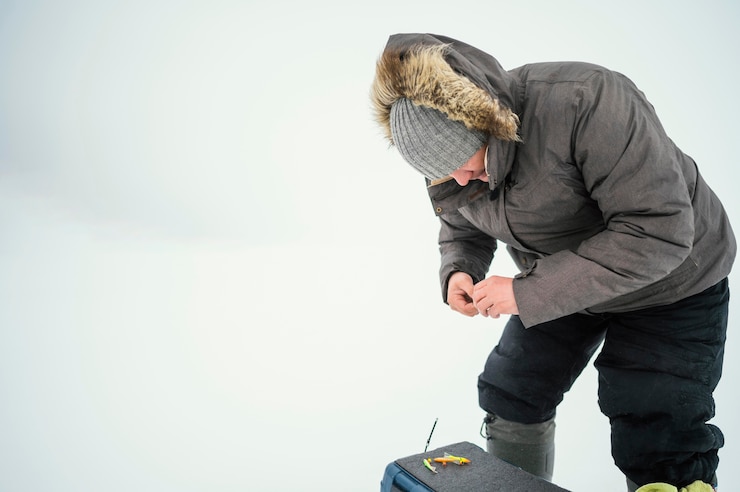
Frost Tech appliances and equipment have gained popularity for their efficiency and durability, particularly in refrigeration and cooling solutions. However, like any technology, they are not without their issues. Many users face common problems that can disrupt performance, leading to frustrations and costly repairs. The good news is that most of these issues have straightforward solutions that you can handle without calling a technician.
In this article, we will explore some of the most frequent problems Frost Tech users encounter and provide step-by-step solutions to fix them. Whether it’s temperature inconsistencies, excessive noise, or power failures, understanding the root cause of these problems can help you maintain your equipment in optimal condition. Read on to learn how you can troubleshoot and resolve common Frost Tech issues efficiently.
Temperature Fluctuations in Frost Tech Refrigerators
One of the most common issues users report is inconsistent temperatures in their Frost Tech refrigerators. The fridge might be too warm, leading to food spoilage, or too cold, causing items to freeze unexpectedly.
This issue often arises due to a faulty thermostat, blocked vents, or incorrect temperature settings. If warm air circulation is restricted, the cooling efficiency decreases. To fix this, first, check the thermostat setting and ensure it is within the recommended range. Next, inspect the air vents inside the fridge and freezer compartments. Blocked vents prevent proper airflow, leading to uneven cooling. Also, examine the door seals to ensure they are intact and free of debris. If the rubber seal is damaged, cold air may escape, affecting the internal temperature. Regularly cleaning the condenser coils can also improve cooling efficiency and prevent temperature fluctuations.
Frost Build-Up in Freezers

Excessive frost build-up is a frequent issue in Frost Tech freezers, reducing storage space and making it difficult to access stored food. This problem typically occurs due to frequent door openings, a faulty defrost system, or a damaged door gasket.
To resolve this issue, start by minimizing how often you open the freezer door and ensure it is properly closed each time. If frost continues to accumulate, check the defrost system for malfunctions. A broken defrost heater or thermostat may prevent proper defrosting, leading to ice buildup. Replacing faulty components can restore normal operation. Additionally, inspect the door gasket for gaps or cracks that may allow warm air to enter, causing condensation and freezing. If necessary, replace the gasket to maintain an airtight seal.
Unusual Noises from the Appliance
A noisy Frost Tech appliance can be frustrating, especially if the sounds are loud and persistent. Common sources of noise include the condenser fan, evaporator fan, or compressor.
If you hear a rattling sound, it may indicate loose components or items vibrating inside the unit. Tighten any loose screws or panels and ensure that the appliance is positioned on a level surface. A humming noise from the compressor is normal, but if it becomes excessively loud, it might be failing and require professional repair. Grinding or squealing sounds could signal issues with the fan motors. Cleaning or replacing the affected parts can resolve the problem. Regular maintenance, including cleaning the condenser coils and checking for obstructions in the fan blades, helps reduce noise and prolongs the appliance’s lifespan.
Refrigerator Not Cooling Properly
A Frost Tech refrigerator that isn’t cooling effectively can be caused by several factors, including a blocked condenser coil, a malfunctioning evaporator fan, or low refrigerant levels.
Start by checking the condenser coils, located at the back or bottom of the unit. Dust and debris accumulation can reduce efficiency, so clean the coils regularly using a vacuum or brush. Next, verify that the evaporator fan inside the fridge is functioning correctly. If the fan isn’t running, it may need replacement. Additionally, inspect the thermostat settings and ensure they are correctly adjusted. If the problem persists, there could be a refrigerant leak, which requires professional servicing.
Water Leakage Issues
Water pooling around the refrigerator or inside compartments is another common complaint. This issue is often caused by a clogged or frozen defrost drain, a broken water inlet valve, or excessive humidity.
To fix this, first locate the defrost drain (usually at the back of the freezer compartment) and check for blockages. If ice has accumulated, use warm water to melt it and clear the drain. If the issue persists, inspect the water inlet valve for leaks. Sometimes, high humidity levels can cause condensation inside the fridge. Using a dehumidifier in your kitchen can help control moisture levels and prevent water leakage.
Ice Maker Not Working
If your Frost Tech refrigerator has an ice maker that suddenly stops working, the problem could be due to a clogged water filter, a frozen water supply line, or a malfunctioning ice maker module.
First, check the water filter and replace it if it is clogged, as restricted water flow can prevent ice production. Next, inspect the water supply line for ice blockages. If frozen, use warm water to thaw it. If the issue continues, reset the ice maker by turning it off for a few minutes and then restarting it. If none of these steps work, you may need to replace the ice maker module or call a technician.
Freezer Door Won’t Stay Shut

A freezer door that won’t stay closed can cause temperature fluctuations and increase energy consumption. This problem often occurs due to worn-out door seals, food items obstructing the door, or misaligned hinges.
To fix this, inspect the door seals and clean them with warm soapy water. If they are cracked or loose, replace them to ensure a proper seal. Make sure no food containers are preventing the door from closing completely. If the hinges are misaligned, adjust them to ensure the door stays shut. Keeping the door in good condition helps maintain efficient cooling and prevents unnecessary energy waste.
Frequently Asked Questions (FAQs)
1. How often should I clean my Frost Tech appliance?
It’s recommended to clean the condenser coils every six months and wipe down the interior regularly to prevent dirt and mold buildup.
2. What should I do if my refrigerator is making a buzzing noise?
Check if the appliance is level and tighten any loose components. If the noise persists, it may indicate a compressor issue requiring professional attention.
3. How can I improve the efficiency of my Frost Tech refrigerator?
Keep the vents clear, clean the condenser coils, and avoid overloading the fridge with food. Also, ensure the door seals are in good condition.
4. Why is my ice maker producing small or hollow ice cubes?
A clogged water filter or low water pressure may be the cause. Replace the filter and check the water pressure to ensure proper ice production.
5. What should I do if my Frost Tech appliance is still under warranty but experiencing issues?
Contact Frost Tech customer support and provide details of the problem. If the warranty is valid, they may offer free repairs or replacements.
Conclusion
Frost Tech appliances are designed for high performance, but occasional issues can arise. Fortunately, most problems have simple solutions that you can handle without professional assistance. By regularly maintaining your refrigerator, freezer, or ice maker, you can extend its lifespan and ensure optimal efficiency. If a problem persists despite troubleshooting, don’t hesitate to seek expert help to avoid further damage. With proper care and timely fixes, your Frost Tech appliance will continue to serve you reliably for years to come.